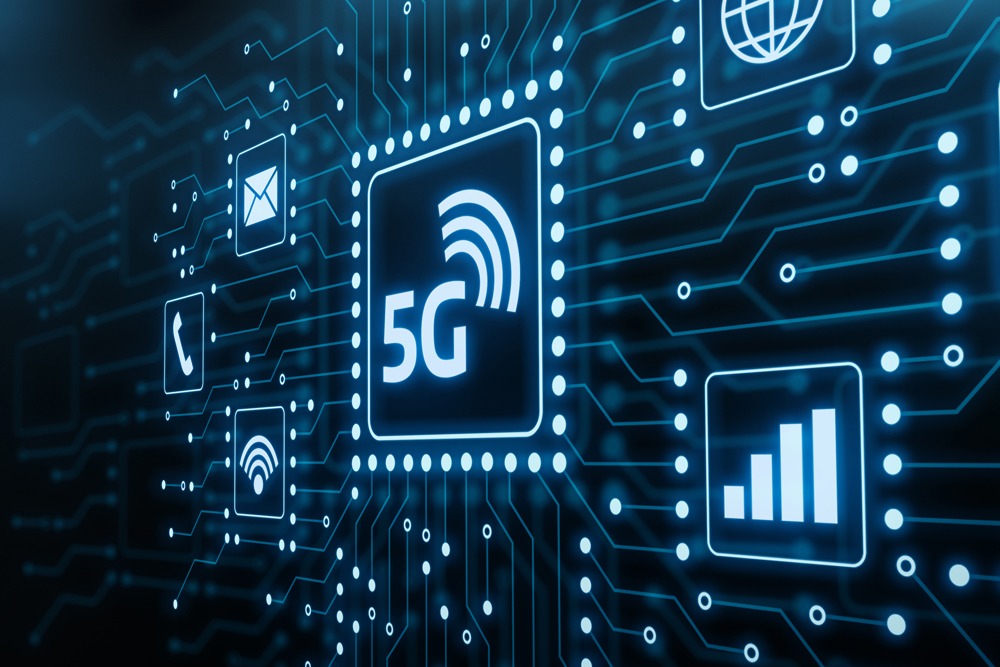Technology has always had a significant impact on society, from the global economy to the success and operations of businesses, as well as the at-home lives of individuals. Yet, compared to today, there’s never been a time when devices and tech are more closely integrated with both personal and professional life. At the same time, the flood of innovations claiming bold change on the horizon make it challenging to determine which developments will be truly transformative. One of those upcoming technologies you’ve probably heard of is set to roll out over the next two years: 5G.
Understanding 5G Technology
With a name that is just one number beyond its predecessor, 4G, technology, it’s easy to assume that 5G is just another fairly unnoteworthy iteration in wireless network technology. You might be imagining a slightly faster smartphone experience–but 5G technology is a much more significant advancement than speedier communications.
The transition to fifth-generation (5G) cellular networks, a once-in-a-decade upgrade according to the New York Times, will propel mobile web use into overdrive with speeds that are up to 100 times faster than 4G. For reference, a 3D movie that takes you six minutes to download with 4G will be available in just three seconds on the new 5G networks. That speed boost, along with the related benefits of the new wireless networks, will have an impact on the life, business, and the economy. It’s a transformation that you can’t afford to ignore–especially as it touches nearly every industry.
5G for Consumers
On the personal, consumer side of 5G technology, the obvious benefit is that faster wireless communication improves the mobile experience, encouraging more browsing, gaming, and shopping on-the-go. More convenient mobile entertainment and transactions are far from the only way 5G will benefit consumers. The greater bandwidth also means more reliability and accuracy for your connected devices like sensors, robots, appliances, and even cars.
5G for Business
Businesses that are built around cellular technology will naturally be affected by the transition to 5G wireless networks, and their focus will be on optimizing mobile devices to take advantage of 5G. This also extends to the Internet of Things (IoT), which will be a network of more than 20 billion connected sensors and appliances by 2020, all enjoying the efficiency of fifth-generation wireless technology.
This new network system is also expected to bring vast advances to areas like medicine, where 5G capabilities will facilitate improved telemedicine services, faster transfer of large image files, and more reliable patient monitoring. In robotics, especially industrial robotics, the launch of 5G represents access to more powerful computing resources through the cloud, improved data for AI tasks, and easier monitoring and maintenance. While these are just a few examples of areas where 5G is expected to create huge forward leaps in innovation, the influence of this technology will be felt in every business, regardless of your industry.
Anticipating a 5G Economy
Big data, artificial intelligence, electric vehicles, privacy, and cyber threats–some of the most influential themes for the next 5 years–will all owe a great deal to the transformations brought by 5G wireless technology. With this influence, along with the increased efficiency of both current and upcoming technologies, 5G is set to have an impact on the economy that its predecessors never had.
Creating New Areas of Revenue
According to a study by The American Consumer Institute Center, 5G will generate more than $500 billion in gross domestic product. Technologies like self-driving cars and virtual reality have yet to live up to their potential; the advantages of 5G wireless networking will make them both more effective and more accessible for consumers. At the same time, the updated network connections will likely inspire the advance of new areas that are still in the earliest stages of development.
Generating New Jobs
Within the wireless industry itself, the 5G upgrade is expected to bring a notable increase in new jobs. Deploying the network will require the creation of many more cell towers as the technology rolls out to new cities, while it also creates the need for a new generation of 5G-enabled devices. Meanwhile, industries and businesses that are able to take advantage of 5G technology for development and production will also see an increase in employment opportunities.
Encouraging Innovation
The efficiency of 5G networks will make it even more efficient and economical to build on current technology as well as experimenting with new uses and fields. Accessibility of greater amounts of data from more connected devices and the lag-free speed of 5G will make it even more compelling to develop innovations that rely on and build on wireless networking.
With its level of influence on daily life and business operations, as well as the future of technology and the near-future economy, 5G wireless technology is far more than the next step in mobile communications. It will change the speed at which communication happens and innovations develop, making it important to consider the impact of this technology within your own business strategy. For individuals who are able to harness the benefits of 5G’s speed and cloud connectivity, this next-generation wireless network can mean significant leaps forward in business.



